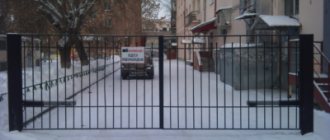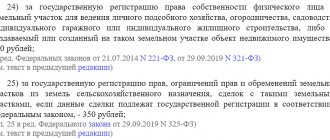Buying a dacha in SNT is a responsible matter in our time. In order to avoid becoming a victim of scammers, black realtors and unscrupulous sellers, you need to know how to formalize the purchase of a summer house in SNT and what documents the seller should have for a plot of land and a country house. Let's look at how to arrange the purchase of a summer cottage with a plot of land yourself and what you should pay special attention to when purchasing a summer cottage plot from a gardening partnership.
What you need to know when buying a summer house in SNT
What pitfalls await us when buying a dacha in SNT, even if all the documents are in order?
The dacha is part of the partnership, which means that certain rules of life and life have already been established among the members of the SNT. You definitely need to familiarize yourself with them, so that later you don’t get any unpleasant surprises in the form of fines from the board, for example, for not mowing the area behind the fence on time.
Some owners try to get rid of their summer cottages when they learn that a major construction of roads or other large structures is planned nearby, so it is better to check information about nearby developments with the local administration.
Even if the land plot is demarcated and has coordinates, they may not correspond to reality. You can check the coordinates by locating the points.
Before buying a dacha, don’t be lazy, find out what the neighbors are like! This is one of the important aspects of peaceful relaxation on your site in the future.
Beware of buying plots with a reduced price, and also be vigilant when the purchase and sale occurs by proxy, without the participation of the owner.
Risks when buying and selling unregistered real estate
When purchasing a plot with an unregistered house, the following problems may arise:
- the owner may refuse to sell the plot if he demands that all documents for the house be completed;
- lack of transparency in the execution of the transaction;
- there is no guarantee that the house was built in accordance with urban planning standards;
- Friction is possible with neighbors who, being aware of all the features of the site, may file a complaint about the presence of an unregistered object.
The new owner will not have any other problems. However, to avoid any questions, it makes sense to draw up documents for the building as soon as possible.
Is it possible to buy a dacha without land surveying in 2021
In 2021, the issue of buying a summer house without land surveying has become very relevant. Every year the legal requirements regarding registration of the purchase and sale of real estate become more stringent.
It is still possible to buy a dacha without land surveying, but it is better to protect yourself from unnecessary problems.
We wrote details about whether it is possible to sell a dacha or garden plot without land surveying, and what restrictions exist on the sale of land, in the article: “Is it possible to sell a plot of land without land surveying?”
What to do if there are no documents for the house and land?
This scenario is the most unpleasant. Such a plot and house located in a village are considered no man's land. The authorities may recognize them as ownerless if ownership or lease for the land and then for the construction are not registered within five years.
It is possible to register such land. But for this purpose, a meeting of the partnership is convened, which will decide on the transfer of the site for use. And this is the basis for registration of property rights.
What documents should the seller present when purchasing a summer house in SNT 2021?
Before buying a dacha in SNT, make sure that it really belongs to the seller and that he has all the necessary title documents.
According to the requirements of 2021, the seller must provide documents for the dacha:
A recent extract from the Unified State Register for the plot is the main document that will be needed when purchasing a summer house. As you know, certificates of ownership will not be issued since 2021. Instead, they use an extended extract from the Unified State Register of Real Estate, which contains all the main parameters of the dacha plot (coordinates, area, full name of the owner, etc.). There are cases when the seller has a certificate of ownership, but the land is not registered in the cadastral register. Here you need to be vigilant and it is better not to buy such a plot, but to wait until the owner registers the rights to it with Rosreestr.
Documents for a country house (extract from the Unified State Register of Real Estate);
Copy of the owner's passport;
Document – the basis of ownership (sale and purchase agreement, court decision, certificate of inheritance);
Spouse's consent;
A certificate from a mental health center (not necessary, but desirable in order to prevent the transaction from being declared invalid);
If there are no documents for a country house, you will face the costs of preparing a technical plan and registering the house in the future. Otherwise, the dacha may be considered a squatter building.
After checking the documents for the dacha, you can begin concluding a purchase and sale agreement for a dacha plot (for information on how to draw up an agreement yourself, read the article: “Agreement for the purchase and sale of a land plot 2021 between individuals - features of registration through the MFC.”
Roots of the problem
At the end of the last century, many of our fellow citizens built houses without worrying about registration and various approvals. The reason for this situation is the complex registration process and the large amount of time it takes.
For a long time, no checks were carried out to determine the legality of unregistered buildings, and citizens simply built houses without registering them anywhere. Many of them remain unregistered to this day.
However, with the entry into force of the law on dacha amnesty, the problem ceased to be relevant. The process of registering ownership of dachas and garden houses has been simplified and the time frame has been reduced. Now the entire registration process takes no more than a month and a half, so it is extremely rare for more modern buildings to be unregistered.
How to buy a dacha and not be deceived
When you buy a dacha from a gardening partnership, you become a full member of the SNT, acquiring not only rights to the dacha, but also responsibilities.
The state in every possible way persuades people to register their properties in the cadastral register, but not everyone is in a hurry to do this for various reasons. Many people do not register their dachas with SNT to avoid paying extra taxes. Others are not ready to spend their time and money on proper paperwork, and some simply do not know that real estate in SNT - be it summer cottages, garden houses, or other fundamental buildings - must be registered with Rosreestr.
Therefore, many summer cottages in SNT are not registered in the cadastral register. How to buy a dacha and not be deceived?
Pitfalls when buying a summer house in SNT:
- Avoid purchasing dacha plots in SNT that have not undergone the land surveying procedure and have not been registered with the cadastral register, even if formally all the owner’s documents are in order. Keep in mind that the land surveying procedure costs money and requires coordination of boundaries with neighbors.
- A garden book is not a document confirming ownership, it speaks of membership in SNT! Read about whether you can or cannot buy a dacha using a garden book in a separate article.
- Rosreestr has the right to suspend the registration of a contract for the sale and purchase of a dacha in SNT, if there are legal grounds for this (read more about the suspension here). For example, the site does not have clear boundaries (not demarcated), the application was submitted by an inappropriate person, there are legal disputes regarding the site (seizure, etc.).
- If the owner sells the dacha through a proxy, do not be lazy and check the power of attorney for authenticity, there are different cases. Try to meet the owner and get a copy of his passport.
- If there are buildings on the dacha plot - a house, a bathhouse, outbuildings, etc. - check their cadastral registration, and also whether the buildings comply with all the standards for setbacks from the boundaries of the land plot.
- After receiving an extract from the Unified State Register for the site, check its boundaries by resorting to the services of a geodetic company - order the boundaries to be taken out in kind - this way you will protect yourself from possible serious problems in the future.
- Check the type of permitted use and purpose of the land, and whether the site is located in a zone with special conditions for the use of territories (ZUT). For example, buying a summer house in the area near an airfield, in a cultural heritage zone or in a water protection zone can result in significant difficulties when preparing documentation for a country house in the future.
Development of economic and gardening areas
If the area is neglected, you will first need to clean it. Deal with the weeds, put those trees that you decide to leave in order, cut down and uproot the rest. If the area is already well maintained, it is better not to rush and change it gradually.
In any case, the main thing is not to overestimate your capabilities. This is a very common mistake - to overly speed up the process of arranging a site. You won’t be able to do everything at once, so it’s better to move forward gradually. First of all, it is worth developing the economic zone: installing a central water supply system, drilling a well, making a sewer system.
It is also worth creating conditions for future construction: installing temporary housing, temporary warehouses, and so on. For all this, it is worth finding a convenient place in advance, located so that it is convenient to import materials and carry out construction.
Garden and vegetable garden areas can be developed after construction is completed, before, and during - it depends on the specifics of the plan. Often these zones are combined into a common garden zone. It is preferable to place the garden and berry garden in open areas. The garden should not be located in a lowland, because there are cold winds and too much water during the spring flood - this has a bad effect on most garden trees.
In order to successfully develop a gardening area, you need to map out the future placement of all the crops on its plan and think over their location, taking into account the required distances. When the plan diagram is ready, you can proceed to preparing the soil. From the places allocated for construction, its top layer must be removed and transported to where it is planned to make plantings. Then you should level the soil, if the area is virgin, plow it.
For further planning, it is best to submit a soil sample for laboratory analysis, but you can do without it. So, you can check its acidity with litmus paper or vinegar. Acidified soil will need to be deoxidized; for this, lime, dolomite flour, ash, gypsum, chalk and other means are used.
If the soil is clogged, it is worth provoking the proliferation of weeds in order to destroy as much as possible and clean it. Fertilizers should be added to depleted soil - manure, humus, and so on. All these activities take time, so it is better not to plant anything in the first year, otherwise you will then have to constantly fight weeds and other problems.
Law
Legislative acts regulating transactions with real estate and, in particular, land plots are:
- Civil Code of the Russian Federation;
- Land Code of the Russian Federation.
Registration of ownership of an acquired land plot is also subject to the norms of Law No. 122-FZ (valid until 01/01/2020), which regulates the principles of registration of the arisen right to a real estate property. According to its rules, the transaction does not require notarization. But there are a number of cases when it is mandatory:
- when purchasing land from a legal entity;
- in case of shared acquisition of a plot of land, regardless of its permitted use;
- with the participation in the transaction of a child under the age of majority, as well as a citizen declared incompetent.







